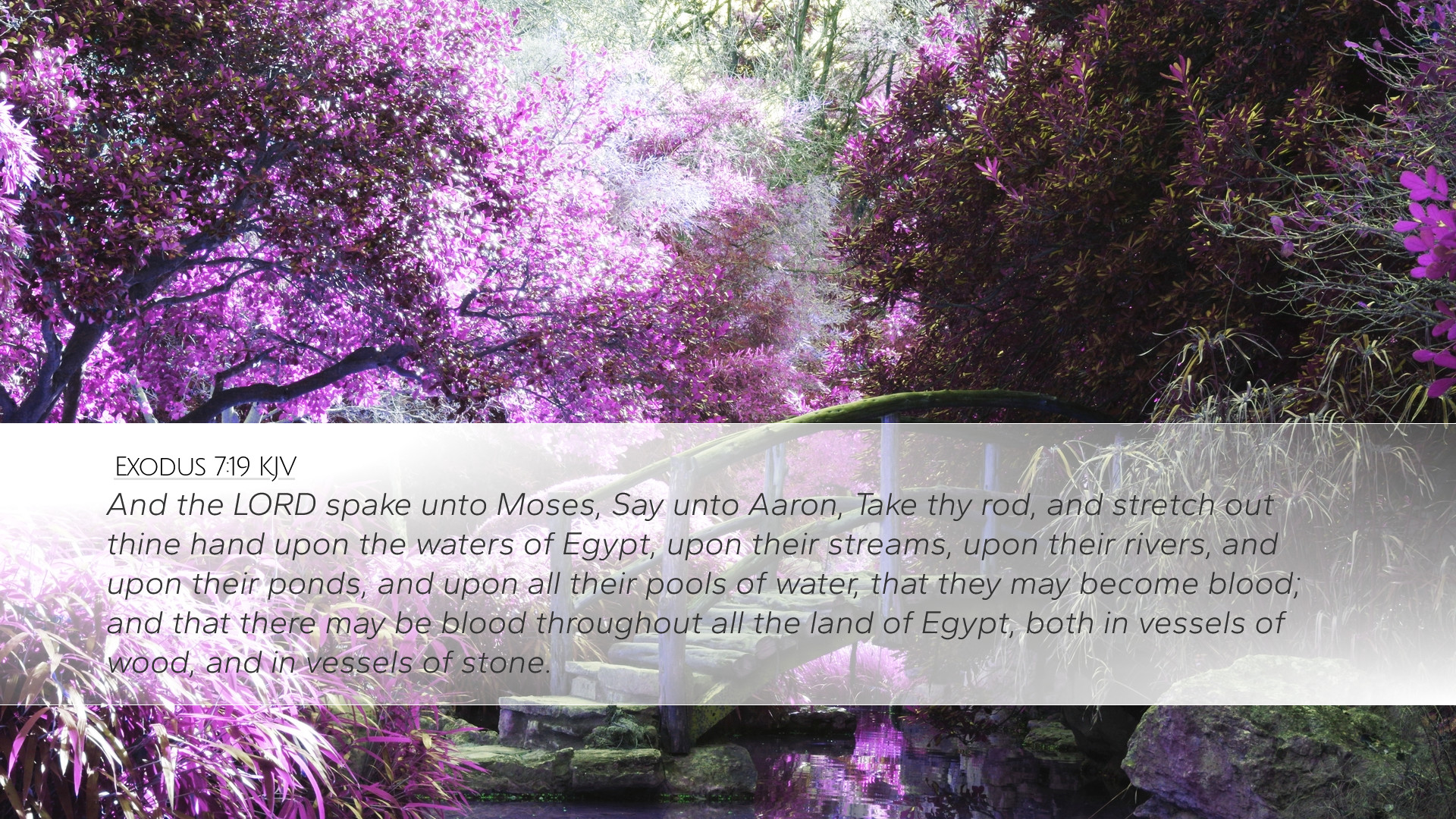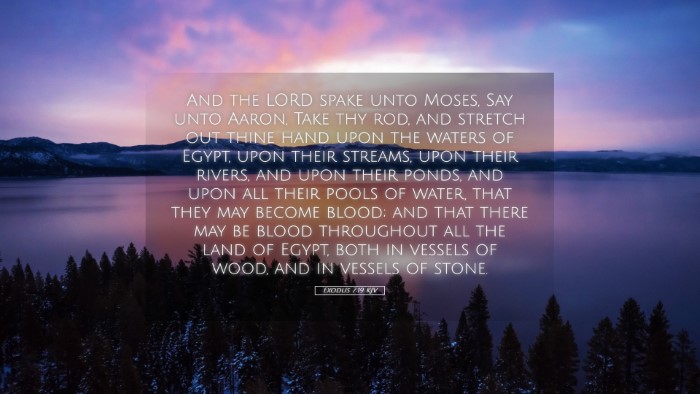Commentary on Exodus 7:19
Exodus 7:19 recounts God's command to Moses regarding the first plague that would afflict Egypt: the transformation of water into blood. This passage serves as a significant turning point in Exodus, illustrating God's power and the impending judgment upon Pharaoh and the Egyptians for their oppression of the Israelites. Below, we examine insights drawn from notable public domain commentaries, highlighting theological implications, historical context, and lessons applicable to contemporary believers.
Text of Exodus 7:19
"And the Lord spake unto Moses, Say unto Aaron, Take thy rod, and stretch out thy hand upon the waters of Egypt, upon their streams, upon their rivers, and upon their ponds, and upon all their pools of water, that they may become blood; and that there may be blood throughout all the land of Egypt, both in vessels of wood, and in vessels of stone."
Theological Insights
This verse is laden with profound theological implications that can be examined through the lenses of God's power, judgment, and deliverance:
- The Sovereignty of God: The transformation of water into blood demonstrates God's absolute sovereignty over His creation. As Adam Clarke notes, this act showcases God's ability to control nature itself, emphasizing His dominion over all earthly elements.
- Judgment for Idolatry: Matthew Henry emphasizes that this plague attacks the Egyptian gods associated with water and fertility. By turning the Nile, a sacred river, into blood, God challenges the Egyptians' reliance on false deities, revealing their impotence before the true God.
- Foreshadowing Redemption: Albert Barnes points out the blood’s symbolical significance in the broader narrative of Scripture. This event foreshadows the themes of sacrifice and redemption manifest in the later covenant through Christ's sacrificial blood.
Historical Context
Understanding the cultural and historical background of this event enhances our comprehension of its impact:
- Egyptian Religious Practices: Egypt greatly revered the Nile River, which was essential for sustaining life. The transformation into blood directly assaulted this cultural and religious element, instilling fear and showing God's power over the Egyptian pantheon.
- The Hardness of Pharaoh's Heart: This passage occurs in the context of Pharaoh's stubbornness, leading to a series of confrontations between Moses and Pharaoh. Barnabas notes that the plagues represent God's relentless pursuit of His people’s liberation, highlighting Pharaoh's obstinate heart despite evident signs of divine intervention.
Practical Applications
Exodus 7:19, beyond its historical significance, offers several practical lessons for modern readers:
- God's Call to Action: The command to Moses and Aaron illustrates the importance of obedience to God's word. Pastoral leaders and students of the Bible are reminded that active faith often requires tangible actions in response to God's directives.
- The Reality of Judgment: The transformation of water into blood serves as a sober reminder of God's judgment. It challenges contemporary believers to reflect on their spiritual state and the consequences of rejecting God.
- Hope Amidst Plague: While calamity unfolded in Egypt, the Israelites were preserved, offering a narrative of hope. This brings comfort to those in ministry and struggling believers that despite challenges, God’s deliverance accompanies His judgment.
Conclusion
Exodus 7:19 is more than a historical account of the first plague against Egypt; it is a profound demonstration of God's sovereignty, power, and judgment. The insights drawn from esteemed commentaries highlight its relevance across centuries. As pastors and scholars engage with this text, it invites inquiry into the character of God and reminds us of our calling to respond faithfully to His commands, trusting in His ultimate plan for redemption.


